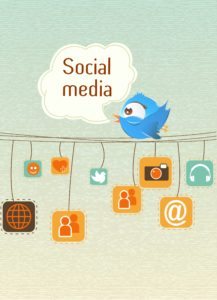Quick links, bringing you great articles on writing from all over the web.
I have been a big fan of the Pomodoro Technique for a long time. The short version is that you do your best work when you are refreshed, usually in the first 15 – 30 minutes of a task. So by scheduling short breaks, you give your brain a rest and then can come back to your task with renewed energy. John Lee Dumas uses this technique to help him with his writing. Head over to Goins, Writer to learn more.
~ * ~
How to Just Start When it Comes to Writing
 There’s nothing more frustrating than the bright, white glow of an empty screen and the constant, blinking reminder from your cursor that you’re not making any progress.
There’s nothing more frustrating than the bright, white glow of an empty screen and the constant, blinking reminder from your cursor that you’re not making any progress.
Writing a strong piece – one that’s valuable to your readers and that you feel great about – isn’t easy.
But what if I told you there’s a simple formula you can follow to get more writing done in a single day than you did all last week?
A simple formula for real progress
You already know the toughest part about writing is getting started. If you can get the first sentence down, then the rest will follow.
Of course you’ll do re-writes, have edits to make, and you might even go back and add a thing or two. But doesn’t it feel incredible to just start?
Just starting the writing process is progress in and of itself, not to mention what follows: strong momentum, or what some refer to as “the flow”.
This simple formula for real progress is made up of two parts and will help you just start every time you use it.
The two parts are: “Focus Time” and “Refresh Time”.
If you’re familiar with the Pomodoro Technique, then you probably know where I’m headed with this. The idea is that you give yourself a specific amount of time to accomplish X, start a timer to hold yourself accountable, and FOCUS on X until your timer runs out.

 I wish I could tell you that proofreading will always cost one cent per word, copyediting two cents per word, and developmental editing three cents per word, but the truth is much hazier than that.
I wish I could tell you that proofreading will always cost one cent per word, copyediting two cents per word, and developmental editing three cents per word, but the truth is much hazier than that. No matter where you are in the book-writing journey, at some point the sheer volume of material begins to overwhelm and it’s time to look carefully at how to organize yourself.
No matter where you are in the book-writing journey, at some point the sheer volume of material begins to overwhelm and it’s time to look carefully at how to organize yourself. Do you want to form good habits that will help you reach your goals? In this training, I share with you three steps to form good habits that will lead you to success.
Do you want to form good habits that will help you reach your goals? In this training, I share with you three steps to form good habits that will lead you to success. As marketing efforts for authors and other industry professional begin to look beyond reach to engagement, a shift in thinking about the purpose and management of social support for our content and campaigns is needed. Whether you’re launching a new book or building and sustaining interest in your own platform, engagement is key. It’s not enough any longer to set up a hashtag, analyze reach or impressions and consider a campaign successful. In addition, with content more prolific than ever, finding ways to cut through the noise is essential.
As marketing efforts for authors and other industry professional begin to look beyond reach to engagement, a shift in thinking about the purpose and management of social support for our content and campaigns is needed. Whether you’re launching a new book or building and sustaining interest in your own platform, engagement is key. It’s not enough any longer to set up a hashtag, analyze reach or impressions and consider a campaign successful. In addition, with content more prolific than ever, finding ways to cut through the noise is essential. We’ve been exploring the power of
We’ve been exploring the power of  by
by Over the past few months, we’ve talked about
Over the past few months, we’ve talked about 
 by Jeffrey Monaghan
by Jeffrey Monaghan 5 Bad Reasons for Author Blogs
5 Bad Reasons for Author Blogs This week in our series celebrating super-successful indie authors, we talk to guitarist Joseph Alexander who has established the terrific
This week in our series celebrating super-successful indie authors, we talk to guitarist Joseph Alexander who has established the terrific  by Elizabeth S. Craig, @elizabethscraig
by Elizabeth S. Craig, @elizabethscraig
 by Keely Brooke Keith
by Keely Brooke Keith